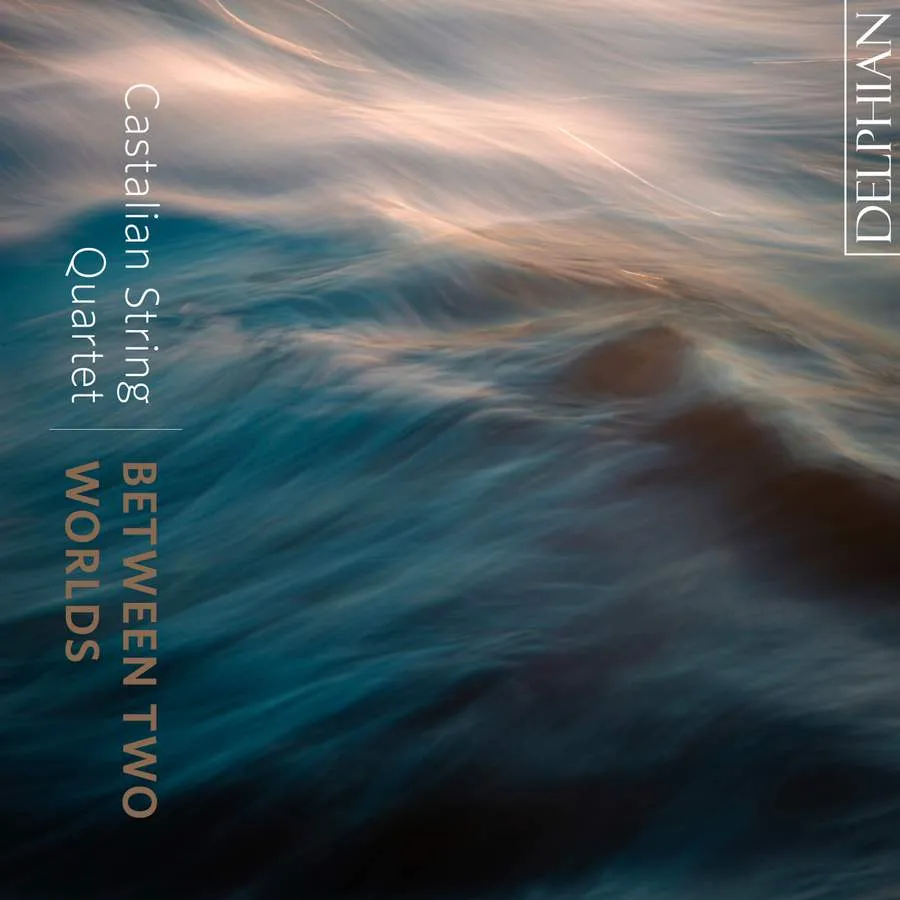
Between Two Worlds Lassus: La nuit froude et sombre (arr. Simonen); Beethoven: String Quartet No. 15 in A minor, Op. 132; Thomas Adès: The Four Quartets; Dowland: Come Heavy Sleep (arr. Simonen) The Castalian String Quartet Delphian DCD34272 66:43 mins
This outstanding disc offers listeners a true philosophical journey. Perceptively programmed, Between Two Worlds explores the mystic properties of time through a series of intricately connected works, each performed with rare beauty and originality by a quartet working at the height of its powers.
The disc opens with a mesmerising, near-whispered performance of Lassus’s ‘La nuit froide et sombre’ (arranged by the quartet’s own first violinist Sini Simonen) which charts the cycle of night and day as a mirror of the human propensity to oscillate between hope and despair. From here, we move to Beethoven’s String Quartet No. 15 in A minor, Op. 132, a piece which travels ‘from the terrestrial to the celestial and back’. This work, the second of Beethoven’s five late quartets, was composed in the summer of 1825, just two years before the composer’s death. By now, Beethoven’s hearing loss was profound and he was intermittently stricken with a horribly painful intestinal problem. The score reflects it all with heartrending intensity, in the words of Simonen ‘moving from the anguished to the heavenly before crashing back to earthly suffering’.
The Castalian Quartet is intimately alive to every shift of colour and mood in this extraordinary score and succeeds in conjuring the sense of both deep contemplation and vivid spontaneity. The quartet is especially daring with timbre, sometimes stripping back the sound to viol-like clarity while also being unafraid to dig in with a refreshing rawness when the score so demands. The quartet’s rendering of the work’s monumental third movement – subtitled Heiliger Dankgesang eines Genesenen an die Gottheit, in der lydischen Tonart (Song of Thanksgiving from a Convalescent to the Divinity, in the Lydian mode) – is nothing short of a revelation in its lucidity of line and sheer beauty of sound.
The score of this same Beethoven quartet was reportedly spread across TS Eliot’s desk as he worked on his seminal Four Quartets. In turn, these four poems have a powerful if elusive connection to Thomas Adès’s bold and mysterious The Four Quarters (2010) which charts the progress of a day before ‘breaking free of time altogether’. The Castalian Quartet here draws out all the wondrous strangeness of Adès’s work, from the eery chatter of ‘Nightfalls’ to the criss-cross of pizzicato in ‘Morning Dew’. The final movement, ‘The Twenty-fifth Hour’, is propelled by an array of fiendish rhythmic sequences in 25/16 time and the quartet handles this mind-boggling complexity with total assurance to unleash a wonderfully wild zeal, before the score thins to fragile harmonics and the ensemble is once more a picture of poise. Fittingly enough, the disc ends where it began with a return to the Renaissance – this time a soulful account of Dowland’s lute song ‘Come, Heavy Sleep’.
The album is further enhanced by Andrew Mellor’s terrific sleeve notes which draw together the philosophical strands of the programme with clarity and insight. This is indeed a special release from Delphian and the Castalian Quartet which deserves the very highest praise.
Kate Wakeling
